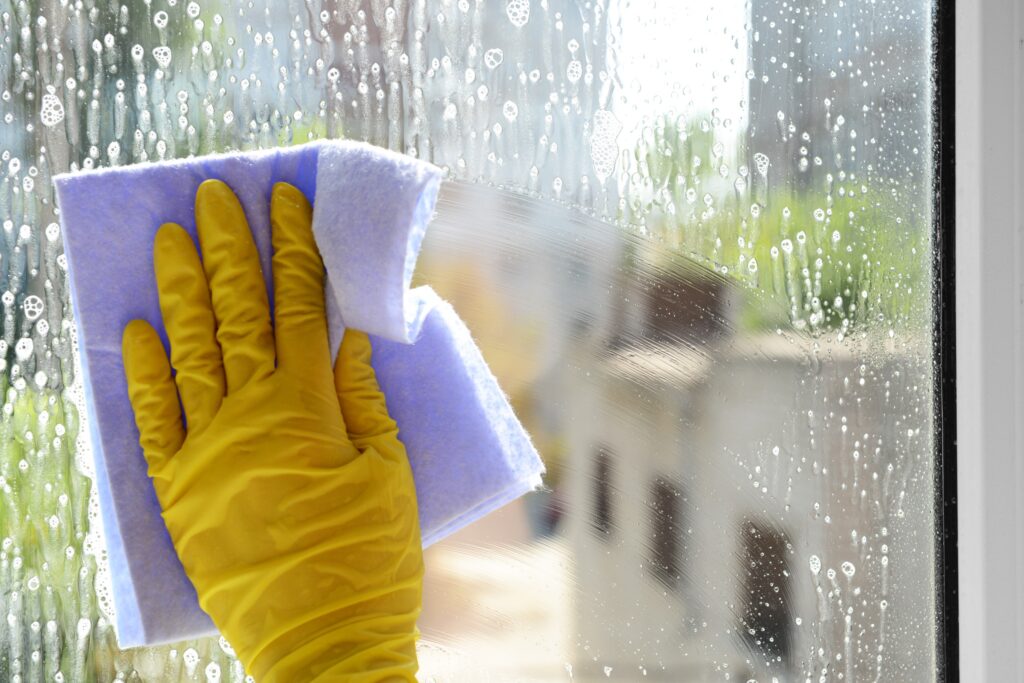Security window film is a valuable investment that protects your property from break-ins, vandalism, and natural disasters. To maintain its effectiveness and clarity, regular cleaning is essential. In this comprehensive guide, we will share our expert tips and step-by-step instructions on how to properly clean your security window film, ensuring it remains in top condition for years to come.
Regularly Clean Your Window Film
Regularly cleaning security window film offers numerous benefits:
- Maintaining Clarity and Visibility: Dirt, dust, and debris can accumulate on the film’s surface, reducing visibility and diminishing its aesthetic appeal. Regular cleaning ensures that your windows remain crystal clear.
- Extending Lifespan: Proper maintenance prevents the buildup of harmful substances that can degrade the film over time. Cleaning helps preserve its integrity and prolong its lifespan.
- Optimal Protection: Security window film works by holding shattered glass together in the event of an impact. Regular cleaning prevents the accumulation of grime that could compromise the film’s adhesive properties and weaken its protective capabilities.
On the other hand, neglecting maintenance can lead to:
- Reduced Visibility: Dust and grime buildup can obstruct views and make your windows look unsightly.
- Film Degradation: Dirt and pollutants can damage the film’s surface, leading to cracks, discoloration, and reduced effectiveness.
- Increased Risk of Damage: A dirty film is more susceptible to scratches and other types of damage during cleaning.
Materials You Will Need
Before you begin cleaning your security window film, gather the following supplies:
- Lint-free microfiber cloths: These are gentle on the film’s surface and won’t leave behind streaks or scratches.
- Mild detergent: Opt for a mild dish soap or a specialized window film cleaner. Avoid harsh chemicals like ammonia or vinegar, as they can damage the film.
- Spray bottle: Fill it with a solution of water and a small amount of detergent.
- Squeegee: A rubber-edged squeegee helps remove excess water and prevent streaks.
- Bucket: A bucket of clean water for rinsing your cleaning tools.
How to Clean Security Window Film
Step One: Prepare the Cleaning Solution
In your spray bottle, mix a few drops of mild detergent with water. Shake well to create a soapy solution.
Step Two: Spray the Window Film
Generously spray the cleaning solution onto the security window film. Make sure the entire surface is covered.
Step Three: Wipe with a Microfiber Cloth
Gently wipe the film with a microfiber cloth in a circular motion. Start from the top and work your way down.
Step Four: Squeegee Excess Water
Use a squeegee to remove excess water and soap residue. Start from the top and pull the squeegee downwards in a smooth motion. Wipe the squeegee blade with a clean cloth after each pass.
Step Five: Dry and Buff
Use a dry microfiber cloth to buff the film and remove any remaining streaks or water spots.
Dos and Don’ts of Cleaning Security Window Film
- DO use a mild detergent and lint-free cloths.
- DON’T use abrasive cleaners or scrub brushes, as they can scratch the film.
- DO clean your windows regularly to prevent buildup of dirt and grime.
- DON’T use ammonia-based cleaners, as they can damage the film.
- DO squeegee excess water to prevent water spots.
- DON’T clean your windows in direct sunlight, as the cleaning solution may dry too quickly and leave streaks.
How Often to Clean Your Security Window Film
The frequency of cleaning depends on several factors, including:
- Location. Windows in dusty or polluted environments may require more frequent cleaning.
- Weather. Rain and wind can deposit dirt and debris on your windows.
- Usage. High-traffic areas may need more attention.
As a general rule, we recommend cleaning your security window film every 3-6 months. However, if you notice significant dirt buildup or streaks, it’s best to clean them sooner.
Troubleshooting Common Issues
Streaks: If you notice streaks after cleaning, it could be due to using too much detergent or not rinsing thoroughly. Try cleaning the windows again with a clean microfiber cloth and plain water.
Bubbles: Bubbles can appear if the film wasn’t installed correctly. If you notice bubbles, it’s best to contact a professional window film installer.
Scratches: Scratches can be caused by using abrasive cleaners or scrub brushes. To prevent scratches, always use a soft, lint-free cloth and a mild detergent.
Frequently Asked Questions About Cleaning Security Film
Q: What is the best way to clean security window film?
A: The best way to clean security window film is to use a mild detergent solution, lint-free microfiber cloths, and a squeegee. Avoid abrasive cleaners, scrub brushes, and ammonia-based products.
Q: Can you use regular window cleaner on security window film?
A: To safely maintain security film, it’s best to avoid using regular window cleaners on security window film, as they may contain ammonia or other harsh chemicals that can damage the film. Opt for a mild detergent or a specialized window film cleaner instead.
Q: How often should you clean security window film?
A: The frequency of cleaning depends on several factors, but we generally recommend cleaning your security window film every 3-6 months. However, if you notice significant dirt buildup or streaks, it’s best to clean them sooner.
Safety, Security, Clarity and Commitment from Sun Masters
By following these tips and guidelines, you can effectively clean and maintain your security window film, ensuring its longevity and optimal performance. Remember, regular cleaning is a small investment that pays off in the long run by protecting your property and enhancing its value.
If you have any questions or need assistance with your security window film or installation, don’t hesitate to contact the experts at Sun Masters. We’re always here to help you make the most of your investment.

